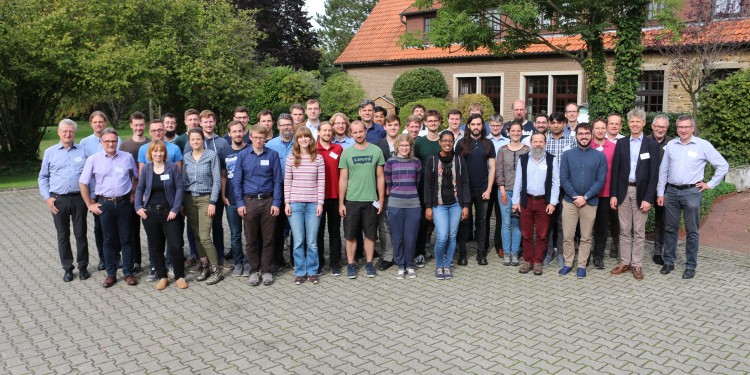
Four million euros granted for particle physicists at the University of Münster
Dark Matter in the Universe is one of the most mysterious phenomena that researchers around the world aim to unravel. Four years ago, when experimental physicists and theorists from the University of Münster joined forces to pursue this and other goals in the Research Training Group "Strong and Weak Interactions – from Hadrons to Dark Matter", this was a premiere for Münster. The cooperation has long been a success and is now being extended with funding of more than four million euros. On Monday, the particle physicists officially received the approval from the German Research Foundation (DFG) to continue the program for another four and a half years.
"This is a special honor for our entire team," emphasizes the future spokesperson of the Research Training Group, Prof Michael Klasen from the Institute of Theoretical Physics. He is particularly pleased that the DFG has increased the highly competitive research funding for the scientists at the University of Münster. "The fact that we will be able to fund even more doctoral students in the future is a visible acknowledgement of our work to date." In the first phase, it was managed by his colleague Prof Christian Weinheimer from the Institute of Nuclear Physics. He is also very pleased: "Our very good research and the ambitious doctoral training were very convincing," he explains. "The question of how our Universe developed is central to the Research Training Group."
Researchers at the University of Münster are particularly interested in the forces acting between the fundamental constituents of matter. This also applies to hadrons, which are held together at the subatomic level by the so-called strong interaction. In the first funding period, the rector of the University of Münster, Prof Johannes Wessels, was also intensely involved as an experimental physicist. "I am delighted that the pioneering cooperation between theory and experiment continues to be appreciated by the DFG," he emphasizes. Currently, the University of Münster hosts five DFG-funded Research Training Groups.
In particle physics, the key elements of the educational concept are the transfer of key competences and the student exchange for several weeks among theory and experiment. International partner organizations such as the European nuclear research center CERN in Geneva, universities in the USA and France as well as graduates that now thrive in the IT sector also participate. The international appeal of the Research Training Group is reflected, among other things, in the fact that former members now conduct research in Stanford, Beijing or Genoa.
